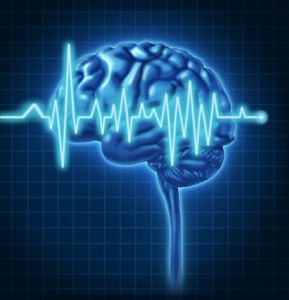NAC – The New Addiction
 N-acetylcysteine (NAC) is an intriguing nutrient best known for its role in liver health and detoxification pathways.
N-acetylcysteine (NAC) is an intriguing nutrient best known for its role in liver health and detoxification pathways.
There is a body of emerging evidence where the NAC has shown promising results in the treatment of a variety of mental health problems, including depression, bipolar disorder, addiction, autism and schizophrenia.
According to Professor Berk, Chair in Psychiatry at Deakin University, there is now evidence that these disorders share inflammation and oxidative stress as part of their disease physiology.
In addition, associated pathways including reduction in proteins that stimulate neuronal growth (neurotrophins), and increased cell death (apoptosis), as well as energy generation in organelles called mitochondria are involved.
NAC Mechanism of Action
Oxidative stress
The brain is especially susceptible to oxidative stress due to its capacity to generate large amounts of reactive oxygen species (ROS).
Glutathione (GSH), a tripeptide comprised of glutamate, cysteine, and glycine, plays essential roles as antioxidant, enzyme cofactor, cysteine storage, major redox buffer, and neuromodulator in the central nervous system
It appears that many mental illnesses feature disrupted mitochondrial metabolism, and this can cause an increase in ROS (Reactive Oxygen Species), with subsequent oxidative stress.
A number of clinical studies have shown that oxidative stress and low glutathione (GSH) levels cause the brain to malfunction.
The cytoprotective effects of glutathione are of particular significance to the brain as GSH is the main antioxidant that protects cells from damage. Our bodies make their own glutathione using the amino acid cysteine, but levels may be depleted in a number of health conditions.
Because of glutathione’s chemical structure, it is not possible to take glutathione as a supplement and absorb it. However, studies show that taking the form of cysteine known as NAC as a supplement will raise glutathione levels within the brain and body tissues.

N-acetyl cysteine (NAC) is an amino acid (a component of protein) most well-known for its potent antioxidant effects. NAC is remarkable in its ability to increase glutathione (GSH).
NAC supplementation provides cysteine, the most important amino acid precursor for glutathione synthesis, in a more bioavailable form than cysteine supplementation alone.
In addition to raising plasma glutathione, NAC may have direct effects to chelate heavy metals and has been shown to independently scavenge oxidative free radicals.
Cysteine cannot be taken in its simple form, since it is highly subject to oxidation; NAC, which does not readily oxidize, is taken up by cells and deacetylated into acetate and cysteine.
NAC has been shown to successfully penetrate the blood-brain barrier and be an efficient way to raise blood GSH levels.
In addition to providing cysteine for GSH production, NAC has been shown to scavenge oxidants directly.
Modulation of Glutamate Signalling
Glutamate is the primary excitatory neurotransmitter and is important in mediating neuroplasticity and learning in the brain.
However, when present at high levels, glutamate stimulation can lead to neurotoxicity through overstimulation of cells, and can even lead to neuronal and glial cell death.
Both glutathione depletion and abnormal glutamate neurotransmission have been found in a number of mental health conditions and nervous system disorders, including bipolar disorder, schizophrenia, obsessive-compulsive disorder, pathological gambling, and cocaine dependence.
NAC has been shown to modulate the levels of excessive glutamate, which cause toxic damage in brain disorders like schizophrenia and addiction.
 Facilitates Dopamine Release
Facilitates Dopamine Release
N-acetylcysteine levels can also regulate dopamine release.
Drug abuse and addiction leads to severely reduced dopamine receptors.
However, animals studies have shown that NAC can help to protect against decreases in dopamine
Enhances Levels of Nerve Cell Growth
NAC has unique protective effects on neurons to improve cellular energetics, promote nerve growth and support dopamine signalling, with benefits for mood, psychiatric and neurodegenerative disorders.
Modulates Inflammation
Alterations in pro- and anti-inflammatory cytokines, including interleukin (IL)-6, IL-1β and tumour necrosis factor (TNF)–α, have been reported in patients with depression, bipolar disorder and schizophrenia. These inflammatory cytokines are potential contributors to the underlying pathophysiology of these disorders.
NAC has been shown to have anti-inflammatory propertie that are linked to oxidative pathways, which may provide another potential mechanism of action in the benefits of NAC in psychiatry.
NAC also enhances levels of nerve cell growth proteins and the growth of new neurons; and reduces cell death pathways. It also appears to reduce dysfunction of mitochondria.
Mental disorders have a multi-factorial etiology that involves inflammatory pathways, glutamatergic transmission, oxidative stress, GSH metabolism, mitochondrial function, neurotrophins and cell death.
Whereas the mechanisms of NAC are only beginning to be understood, it is likely that NAC is exerting benefits beyond being a precursor to the antioxidant, glutathione, modulating glutamatergic, neurotropic and inflammatory pathways.
References:
1.European College of Neuropsychopharmacology (ECNP). “Amino acid offers potential therapeutic alternative in psychiatric disorders.” ScienceDaily. ScienceDaily, 7 October 2013. <www.sciencedaily.com/releases/2013/10/131007094013.htm>
2.Drexhage RC, Knijff EM, Padmos RC, et al. The mononuclear phagocyte system and its cytokine inflammatory networks in schizophrenia and bipolar disorder. Expert Rev Neurother. 2010;10:59–76. [PubMed]
3.Dinan TG. Inflammatory markers in depression. Curr Opin Psychiatry. 2009;22:32–6. [PubMed]
http://www.ncbi.nlm.nih.gov/pmc/articles/PMC3044191/






This study found oral glutathione is absorbed:
http://www.fasebj.org/cgi/content/meeting_abstract/27/1_MeetingAbstracts/862.32